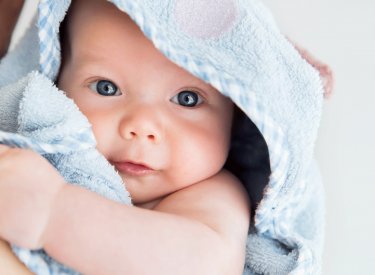Understand my skin
Atopic Dermatitis Q&A
Atopic dermatitis is a complex condition with several factors involved in triggering it, including patient susceptibility and environmental factors.

Understand my skin
Atopic dermatitis is a complex condition with several factors involved in triggering it, including patient susceptibility and environmental factors.
Atopic dermatitis is a complex condition with several factors involved in triggering it, including patient susceptibility and environmental factors.
Patients typically show changes in the skin barrier and inflammatory reactions.
Environmental factors include: contact with cosmetics, soaps, detergents and any other chemicals applied to the skin, exposure to allergens and infection with certain bacteria and viruses.
Atopic dermatitis is NOT contagious!
Yes. Atopic dermatitis tends to be transmitted on the hereditary line. If one or both parents have atopic dermatitis, children are more likely to develop it. Furthermore, about one-third of children with atopic dermatitis will develop asthma and/or other types of allergies.
Atopic dermatitis affects both sexes equally.
Atopic dermatitis occurs during the first months of life of a child, has a chronic evolution and is strongly influenced by environmental factors. Atopic skin is characterised by persistent dryness and itching that can be unbearable. The superficial layer of the skin does not perform its defence function because it is not integral either on a structural or functional level, thus allowing allergens and microbes to penetrate into the deeper layers. These factors trigger an inflammatory process manifested by skin rashes and scratched lesions (scratches) due to itching.
Atopic dermatitis can affect any part of the skin, including the face, but the areas most commonly affected are the flexural, throat and neck areas.
The affected skin is usually red and dry, and scratches (accompanied by bleeding) are frequent. When atopic dermatitis is active, liquid vesicles may appear on the skin which, after breaking, may cause skin cracks at risk of bacterial or viral infections.
Because of their very dry skin, babies begin to scratch, rubbing against nappies and objects around them, and quickly develop wet red scarring on their cheeks, throat and the rounded areas of their hands and feet. The itching causes restlessness, uncontrollable crying and sleep disturbances. Many may also have digestive disorders (colic, vomiting, diarrhoea) because of the various food allergies they can develop. Learn more about what happens in atopic skin in our dedicated article.
Although the cause of atopic dermatitis is genetic and closely related to the quality of the skin’s superficial layer, it can be triggered and maintained by contact with various factors, such as cigarette smoke in babies with parents who smoke, pollen, mildew, animal hair, temperature and various foods, stress, dentition, bacterial infections, viral infections, etc. The explanation is that both the outer layer of the lipid cell layer and the filaggrin, the protein that forms the cement between the cells, are affected, and allergens or other pathogens penetrate through.

Atopic dermatitis has several defining characteristics including age at onset. It usually occurs in the first months of life, with itching and very dry skin. The diagnosis is made by a specialist and it is imperative that the baby is seen by a doctor. Learn more about it with our dedicated article "I have a kid with atopic dermatitis".

No, it cannot be cured, but there are many ways to control it. By adolescence, most patients have improved skin quality and rarely have acute inflammation, but the skin remains dry; which is why the irritant factors listed above should be avoided.

YES, DEFINITELY YES!
You can live a full life, including sports, swimming and travel. You just have to adapt and always have emollients at hand – at school, at work or on trips.
Cleaning requires special products without preservatives, dyes and fragrances which could be harmful for the lipid layer of the skin. Incorrect use of antiseptics can irritate the skin and aggravate the condition. Antiseptics should not be used continuously, as this may cause excessive skin drying. Special emollients are used, and in the advanced stages of the disease, drug preparations such as corticosteroids or immunomodulators are used, but only with medical prescription.
